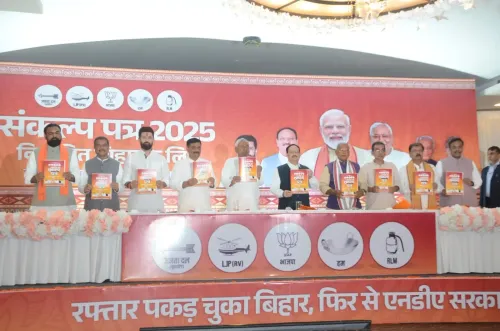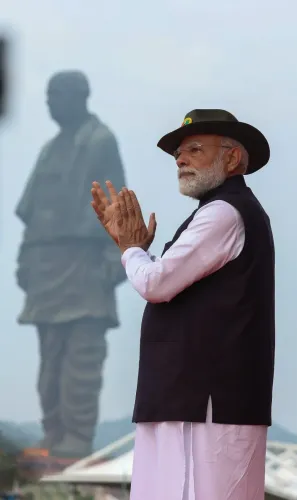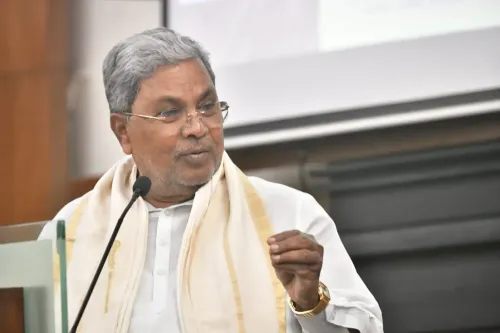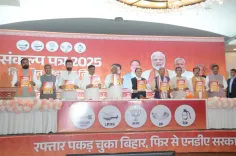Is Rahul Gandhi's Intent in Question? ECI Responds
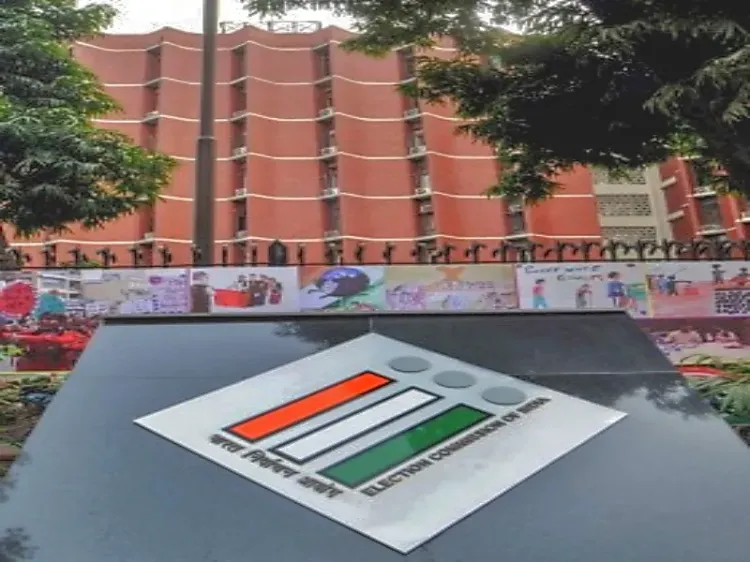
Synopsis
Key Takeaways
- The ECI has formally dismissed Congress's allegations regarding voter turnout.
- Rahul Gandhi has not made any formal complaints to the ECI.
- The ECI urges the Congress to engage constructively in the electoral process.
- Booth Level Officers (BLOs) are crucial for maintaining electoral integrity.
- The outcomes of elections are determined by voter participation, not administrative processes.
New Delhi, June 9 (NationPress) The Election Commission of India (ECI) has provided a comprehensive response to the allegations made by the Congress party regarding the significant increase in voter turnout during the 2024 Maharashtra Assembly elections. Following the public concerns raised by Congress President Mallikarjun Kharge, which echoed those of Rahul Gandhi, the ECI dismissed these claims as unsubstantiated and politically driven, while also scrutinizing the procedural actions of the Congress leadership.
According to sources within the ECI, despite making serious public accusations, Rahul Gandhi has not formally approached the Commission. "Even after two days of his unfounded assertions, Rahul Gandhi has failed to submit a complaint or a letter, nor has he sought an appointment to meet the ECI. Why is that?" the source questioned.
The sources interpreted this silence as a sign of a lack of intent to engage in a constructive dialogue.
The ECI clarified that the Congress party had previously received a formal response to its earlier inquiries on December 24, 2024. This reply, the ECI noted, is publicly accessible on its official website, countering allegations of a lack of transparency.
In rejecting claims of intentional opacity in the electoral roll process, the ECI urged District Congress Presidents to appoint at every polling station and actively participate in the annual electoral roll update process, according to sources. The Commission also highlighted that it conducts training programs for BLAs representing all political parties at its dedicated training institute, encouraging the Congress to utilize these resources to eliminate any potential misconceptions.
Furthermore, the sources emphasized that if the Congress opts not to take part in the roll revision process, it should at least have confidence in the Booth Level Officers (BLOs) appointed by the Electoral Registration Officers (EROs) under Section 13B(2) of the Representation of the People Act, 1950. These officials, the ECI sources indicated, operate within a statutory framework to uphold the accuracy and integrity of the electoral rolls.
The ECI sources also reminded the public that the preparation of electoral rolls, conduct of elections, and vote counting are managed by statutory authorities such as the ERO, Presiding Officer (PRO), and Returning Officer (RO), all of whom function under the ECI's constitutional authority as outlined in Article 324. Ultimately, the ECI stressed that it is the voters who determine election outcomes, rather than the administrative procedures.
In a decisive closing statement, ECI sources targeted what they characterized as a recurring pattern of political evasion by the Congress. They asserted that any political party preparing for electoral results should operate within the political sphere, not by “fighting the referee".
The Commission sources concluded, "The electors of India are astute enough to comprehend why the INC (Indian National Congress) continues to challenge the referee whenever it faces electoral defeat."

